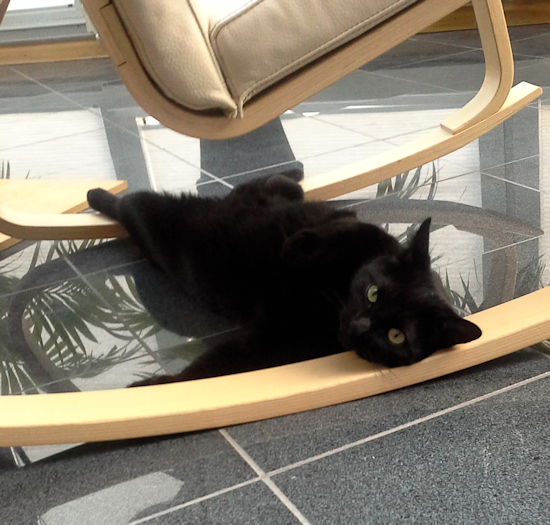
I took this picture of my cat, Leela, in the middle of our heatwave. If she could speak, she’d be saying, “Don’t expect any dead mice on the patio today. I have hitzefrei.”
When my girls were going to German school, they would call me up in the middle of the morning and gleefully announce in beautiful Denglish, “We have hitzefrei!” Because most German schools have no air conditioning, they occasionally have to cancel classes because of excessive temperatures just as we Americans occasionally cancel class because of snow. The word hitzefrei comes from die Hitze, “the heat,” and frei, “unoccupied” or “at liberty.” So hitzefrei is a free day because of high temperatures–a heat day, you might say.
The adjective, hitzefrei, and the noun, das Hitzefrei, mean exactly the same thing, so in most common expressions, the only question is whether to capitalize the H or not. Hitzefrei haben, “to have a heat day,” and hitzefrei bekommen, “to get a heat day” can be either one, so there’s no wrong answer here. But Hitzefrei geben, “to give [students or workers] a heat day,” is always the noun and always capitalized. Kein Hitzefrei bekommen, “not to get a heat day,” should also be capitalized.
